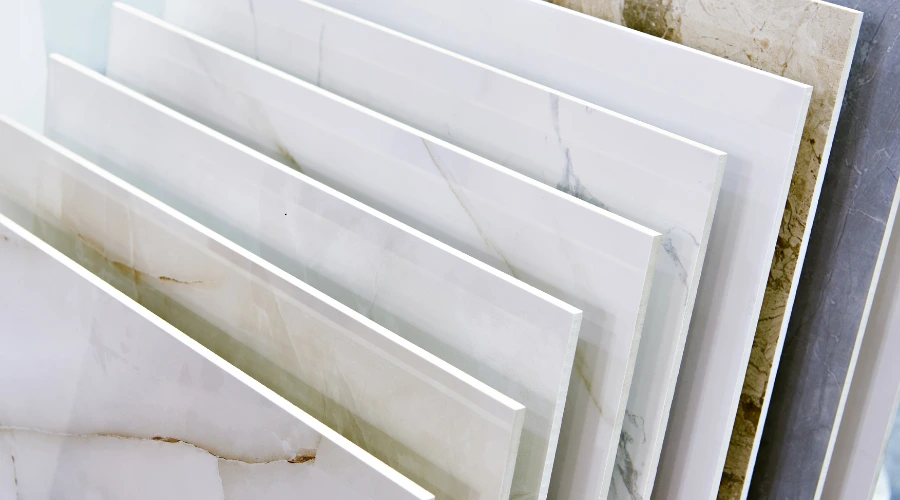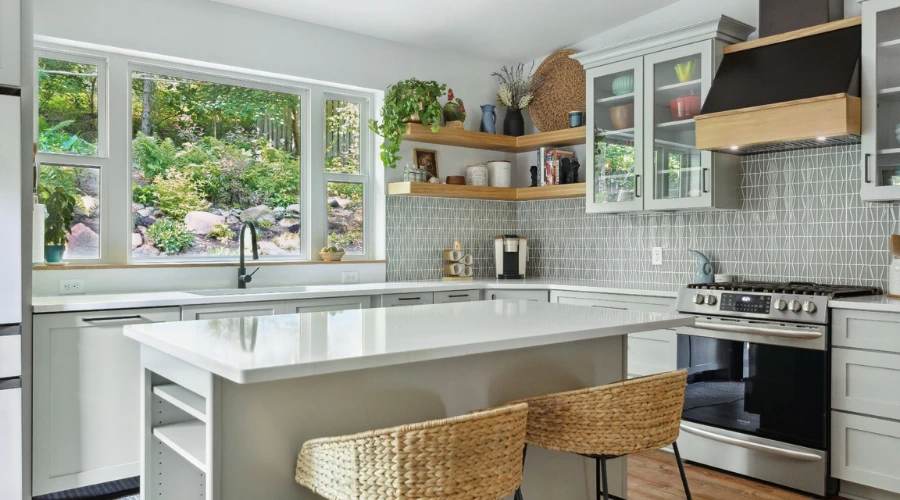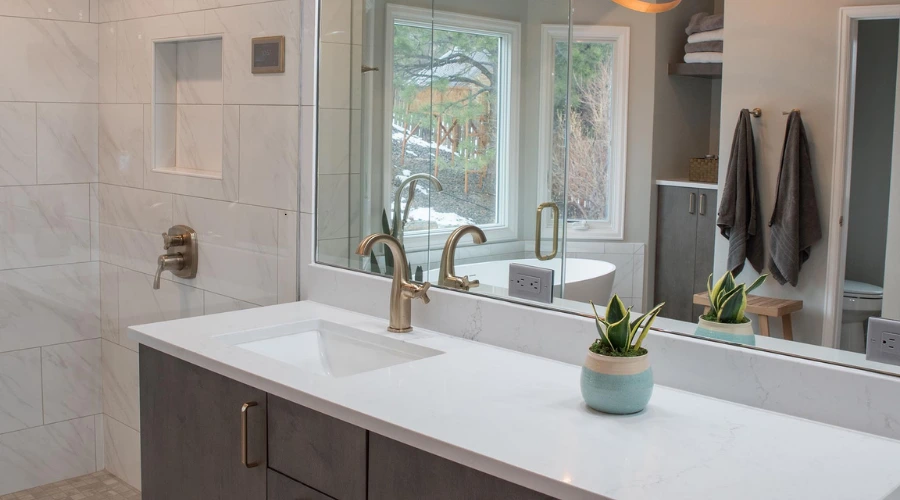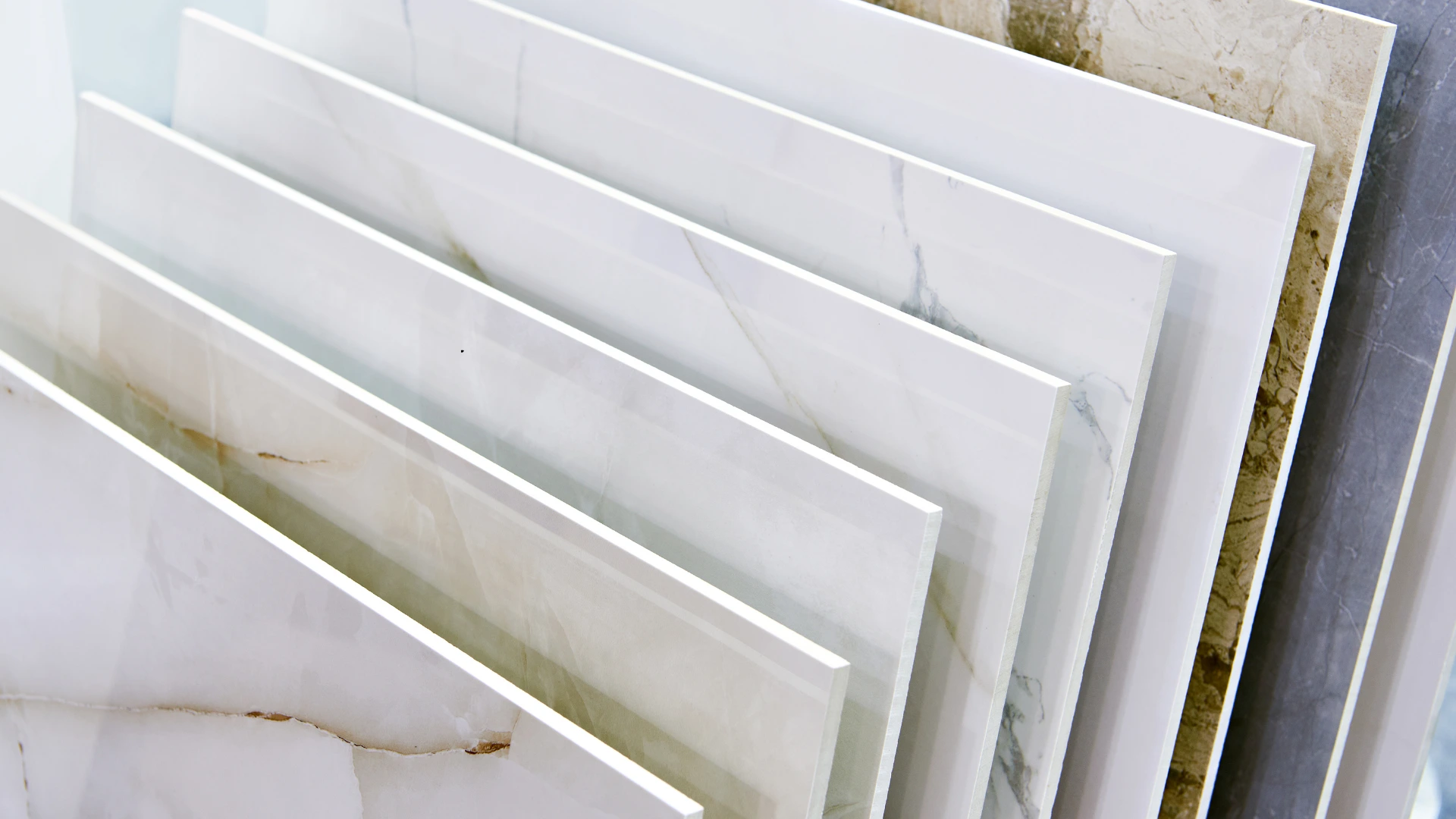Porcelain vs Quartz Countertop
When choosing the perfect countertop for your kitchen or bathroom remodel, porcelain and quartz countertops are two premium options that stand out. Each material brings unique advantages in durability, design, and maintenance, making the decision a matter of understanding how each one fits your lifestyle and aesthetic goals. At VL Builders, we help homeowners make informed decisions with high-quality craftsmanship and expert guidance. Here's how porcelain and quartz compare across the most important categories.

Understanding Porcelain Countertops
Porcelain countertops are made from a type of ceramic clay that is fired at extremely high temperatures. The result is a dense, hard, and non-porous surface that is resistant to heat, scratches, and UV rays. Porcelain has long been used in tile and bathroom fixtures, but advances in manufacturing now allow it to be fabricated into large, thin slabs ideal for countertops.
One of the standout features of porcelain is its ability to mimic natural materials like marble, stone, or concrete with high-definition printing. The surface can also be matte, glossy, or textured depending on the finish, giving homeowners plenty of design versatility.
Understanding Quartz Countertops
Quartz countertops are engineered surfaces made from roughly 90–95% crushed natural quartz combined with resins and pigments. The result is a non-porous, durable surface that is highly resistant to stains, scratches, and moisture. Unlike porcelain, quartz is not heat-proof, but it offers a more consistent thickness and finish across slabs.
Quartz is especially popular for homeowners who want a low-maintenance surface with a luxurious appearance. The color and pattern options are expansive, with some styles closely mimicking natural stone while others offer bold, uniform colors.
Durability: Porcelain Excels in Heat and UV Resistance
When it comes to heat resistance, porcelain outperforms quartz. Since it is fired at high temperatures during production, it can handle hot pans placed directly on the surface without damage. Quartz, on the other hand, may discolor or crack from high heat due to the resin binders used in its fabrication.
Porcelain is also resistant to UV light, making it an excellent choice for outdoor kitchens or areas with significant natural light. Click here to look at outdoor kitchen backsplash ideas to match your countertops. Quartz can fade over time with prolonged sun exposure, limiting its use in bright or outdoor spaces.
However, quartz tends to be less brittle than porcelain and is better at withstanding impact. While both materials are durable, porcelain may be more prone to chipping along edges if heavy objects are dropped on it.
Appearance and Style: A Matter of Preference
Both materials offer stunning visual appeal, but the design differences are worth noting. Quartz typically has a deeper, more three-dimensional appearance due to the natural crystals and resins. It can convincingly replicate the look of granite, marble, or other stone, and the color palette is vast and varied.
Porcelain, on the other hand, excels at surface-level realism through digital printing. It can perfectly emulate natural materials like marble with detailed veining and patterns. However, the designs don’t go through the entire slab, meaning if it chips, the color beneath may be slightly different.
In terms of finish, quartz offers a more uniform look, while porcelain can provide textured or patterned surfaces that cater to modern or industrial designs.

Maintenance and Cleaning: Low Effort for Both
Both porcelain and quartz are non-porous, making them resistant to bacteria, moisture, and staining. This makes either material a great choice for kitchens and bathrooms where hygiene is essential.
Quartz is incredibly easy to clean with mild soap and water, and it does not require sealing. It resists common stains like wine, coffee, and oil with ease. However, you should avoid placing hot cookware directly on quartz to protect the resin content.
Porcelain is just as simple to maintain and even more resistant to heat and chemical cleaners. Since it doesn’t absorb water or food particles, it’s also highly hygienic. That said, cleaning up spills quickly is still recommended to preserve the appearance of the surface.
Cost Comparison: Quartz Is Often More Affordable
The price range for both materials can vary based on color, thickness, brand, and installation. However, quartz countertops are generally more affordable than porcelain. On average:
- Quartz countertops range from $60 to $100 per square foot installed.
- Porcelain countertops range from $70 to $120 per square foot installed.
Porcelain’s higher cost can be attributed to its advanced manufacturing process and the challenges of cutting and installing the thin, fragile slabs. Installation must be handled by professionals with experience working with porcelain to avoid breakage during transport or cutting.
Installation Considerations: Porcelain Requires Special Handling
Porcelain slabs are usually thinner than quartz slabs, which can be a benefit or a drawback depending on your design preferences. The lightweight nature of porcelain makes it ideal for vertical applications like waterfall edges, backsplashes, or wall panels. It can even be installed over existing surfaces in some cases.
However, the installation process is more delicate and requires specialized tools and expertise. Porcelain can crack during fabrication if not handled correctly. Quartz, on the other hand, is more forgiving and easier to install, making it a preferred choice for many builders and remodelers.
At VL Builders, we have the experience and skill to properly fabricate and install both porcelain and quartz countertops, ensuring a seamless and lasting result.

VL Builders: Your Partner in Custom Countertop Solutions
At VL Builders, we know that every remodeling project is unique. That’s why we take the time to understand your design goals, lifestyle needs, and budget to help you choose the countertop material that’s right for you. Whether you're drawn to the heat-resistance and elegance of porcelain or the durability and versatility of quartz, our expert team will guide you through every step.
Both porcelain and quartz countertops offer exceptional benefits, and either one can elevate the style and function of your kitchen or bath. Let us help you make a decision you’ll love for years to come. Contact us today to get started!
Trusted by some of the biggest names in the business!



















